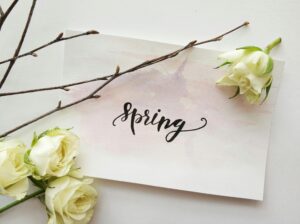The Idea of the Week
First, let’s understand why we ask questions.
Questions have many purposes. Two common functions are to assess knowledge (evaluative) and to cause thinking (rhetorical).
- Evaluative Questioning is used to evaluate or assess the strength or depth of one’s knowledge and identify gaps in one’s knowledge.
- Rhetorical Questioning is used to cause thinking or emotion for effect. Rhetorical questions don’t require an answer, rather they are used to get the audience to really think about what you’re saying. They are also used to affirm or deny a point, to subtly gain agreement from the audience, or to create an effect.
We also ask questions to:
- acquire knowledge
- demonstrate interest
- eliminate confusion
- make a request
- guide a conversation in a direction we want it to go
- enable a person to discover answers for themselves
- gain empathy by understanding another person’s perspective
- influence someone’s opinion or point of view
- begin a relationship
- strengthen a relationship
- stimulate creativity and idea generation
- gain a person’s attention
- solve a problem
- reach an agreement
- keep our audience engaged and interested
How we ask questions can affect the answers we receive. So depending on the way we ask our question, we may or may not receive an answer that satisfies what we were seeking; we may gain clarity and understanding, or we may become more confused.
So, what are the Questioning Techniques [article] we can use to receive the response we’re looking for? In this 12-minute read, you’ll learn the different questioning techniques and what each technique is best used for.
Practice of the Week
Now that we know the purposes and techniques of asking questions, how do we ask quality questions?
When we ask questions, we want to make sure our questions:
- have a specific intention, and
- are clear and easy for our intended recipient to understand.
In a 4-minute read, Verywell Mind shares the steps of building small talk into a conversation by asking follow-up questions. The article notes that small talk can be used to make you and the other person comfortable. Small talk becomes a conversation when you start to become genuinely interested in the other person and what they have to say.
One technique of questioning that can be difficult to accomplish is making requests, or asking someone to do something for you. The Art of Asking: Or, How to Ask and Get What You Want [article] is a skill, and in this 19-minute read, you’ll learn 21 steps (broken down into 4 parts) that will help you articulate requests and receive a response from your audience.
News of the Week
Virtual and In-Person Group Request
We are gearing up to provide virtual and in-person groups in the fall. We are planning to conduct several groups, and we want to meet the needs of our community. What kind of groups would you like to see?
To request a group, send your requests in an email to [email protected] with the subject “Group Ideas.”
We have 2 groups that you can register for now: Mother’s Light, which is a postpartum support group, and an Art-Based Trauma Therapy group. Check out the flyers to learn more about these groups.
Mother’s Light
To register for this group, please contact Caitlin at [email protected]
Art-Based Trauma Therapy Group
To register for this group, please contact Jennifer at [email protected]
The Thought of the Week
Wishing you a peaceful week!







